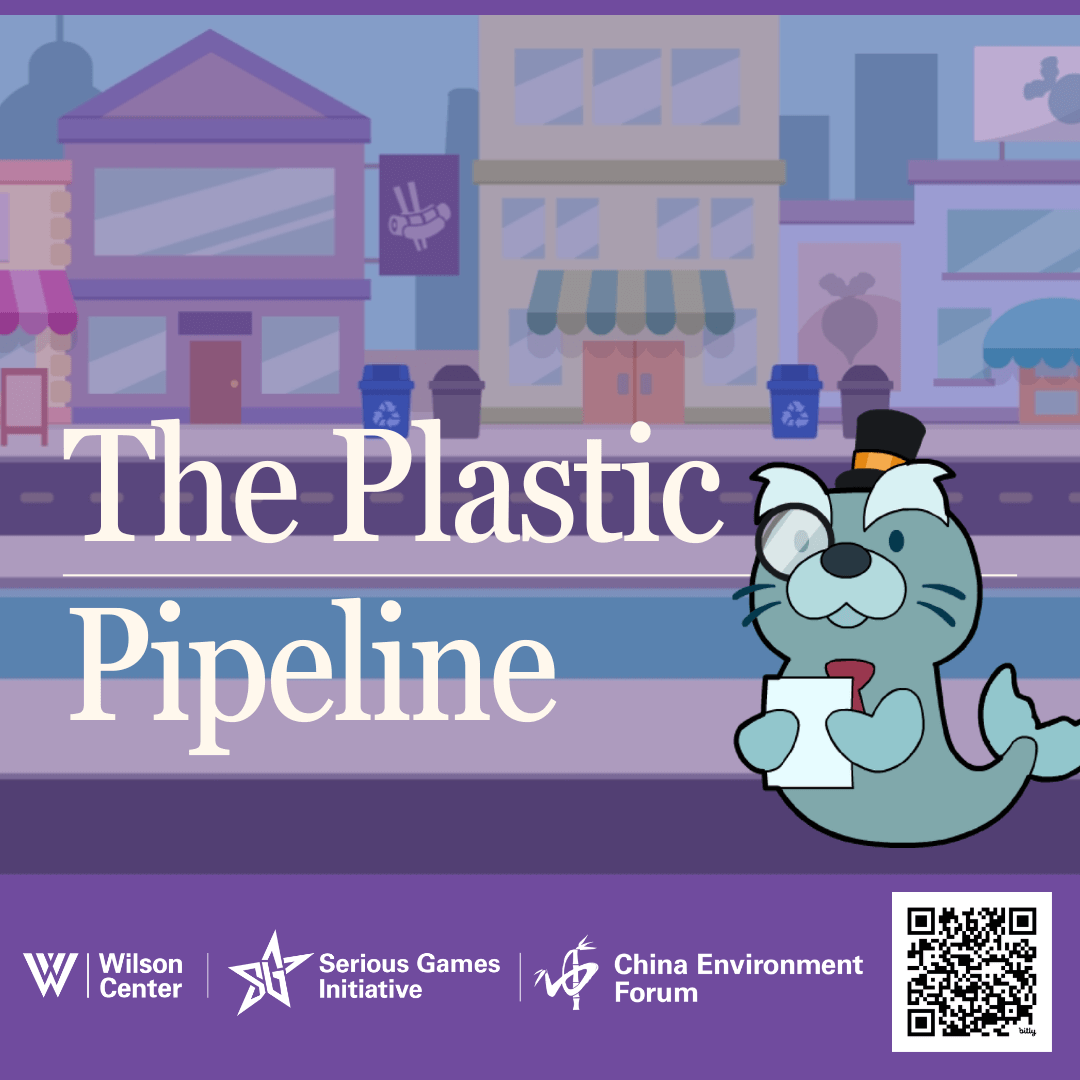Award Won!
Best Government Audience Game (Available 2022-present)
Award Won!
Best Social Media Crowdsourcing Game
Award Won!
Students’ Choice Award (Available 2013-present)

The Plastic Pipeline
The Woodrow Wilson International Center for Scholars
Ocean plastic pollution is a global crisis; but what can we do? The Plastic Pipeline takes players through points on the ‘lifecycle’ of a single-use plastic product to empower them to learn about policies being used to fight it. Help stem the tide of pollution and save our oceans.
